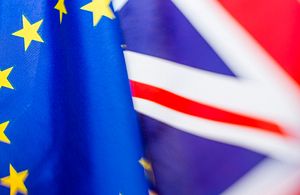Britain, under both Prime Ministers Theresa May and Boris Johnson, has repeatedly expressed its interest in “potentially” joining the Trans-Pacific Partnership (TPP11, or formally, the Comprehensive and Progressive Agreement for TPP: CPTPP) once it leaves the European Union. Japan and certain other CPTPP members, like Australia and New Zealand, are said to be supportive. Nonetheless, the considerations are rather complex.
First and foremost, whether the United Kingdom will even be in a position to join the CPTPP is as yet unclear, dependent as it is on the terms of the UK-EU relationship once Brexit actually takes place. Securing an independent trade policy has consistently been one of the most important stated objectives of the UK government throughout the Brexit negotiation process. However, this is at odds with another imperative: maintaining the closest possible economic relationship with the EU. If the UK ends up remaining in the EU’s customs union or establishing a similar customs arrangement under a different name, London’s ability to conclude free trade agreements (FTAs) with other countries will be severely constrained, rendering the idea of joining the CPTPP all but impossible. Putting identity or sovereignty arguments aside, all available economic estimates indicate that it is in the UK’s economic interest to maintain a close relationship with the EU, preferably including the customs union.
Fully aware of this dilemma, the UK government always uses the qualifier “potential” when talking about its position on joining the CPTPP. In the Asia-Pacific region, this raises an important question as to which Britain is more preferable: a Britain conducting independent trade policy separate from the EU or a Britain closely tied to the EU market? On this, there is no consensus among the countries of the CPTPP.
First, despite the fact that Prime Minister Shinzo Abe and his ministers often express support for the idea of Britain’s joining the TPP, considerations in Tokyo are more complicated, because safeguarding the interests of Japanese companies operating in the UK is always of top priority. Simply put, Tokyo wants to see a “soft Brexit” – the closest possible relationship between the UK and the EU, which in turn makes it difficult for the UK to join the TPP.
Tokyo’s support for the UK’s joining the TPP can therefore be understood as an insurance policy in the case of a “hard Brexit,” not as the most desirable outcome. While anything could still happen given the fluid state of British politics and negotiations on the future relationship between the EU and UK have yet to even begin, if the government of British Prime Minister Boris Johnson remains in power, it is likely that the UK will leave the EU customs union after the transition period.
Also, quite apart from the considerations about Japan’s commercial interests in the UK, as a country that took the lead in salvaging the TPP following the Trump Administration’s withdrawal from the original version, enlarging it to other like-minded countries including the UK can be seen as another diplomatic victory, which many in Japan would support (without necessarily knowing about the trade-off regarding the future of the UK-EU relationship).
Second, Australia is a good example of a country that wants to see a clean break between the UK and the EU, anticipating the chance to further open up the UK market for its agricultural products. Because of this consideration, some criticism emerged from Australia following Theresa May’s Brexit deal, fearing that the UK could remain in the EU customs union and therefore not be in a position to join the TPP.
Countries around the world are preparing to take advantage of Britain’s weakened or even desperate negotiating position. This also explains why Tokyo did not agree to conclude what is called a trade continuation agreement, a contingency framework in the event of a no-deal Brexit, essentially continuing the application of the EU-Japan Economic Partnership Agreement (EPA) that entered into force in early 2019. Tokyo is reported as expecting to extract more concessions from a post-Brexit UK. The UK side may well have been disappointed by Tokyo’s attitude, but that is the reality of trade politics.
Brexiteers’ claim that the UK will conclude FTAs with a number of countries, including emerging economies like China and India, as well as the United States, leaving behind the shackles of EU red-tape, is unlikely to materialize quickly, if ever. Nonetheless, regardless of Britain’s potential accession to the TPP, the “global Britain” concept that London is championing is something to be welcomed in the Asia-Pacific region as well. While it is hardly a panacea for post-Brexit challenges for the UK, it is certainly better than the prospect of an inward-looking, marginalized UK. Britain’s joining the TPP could soon be the action that dispels the fear of a “little Britain.”
Michito Tsuruoka is an associate professor at Keio University.

































